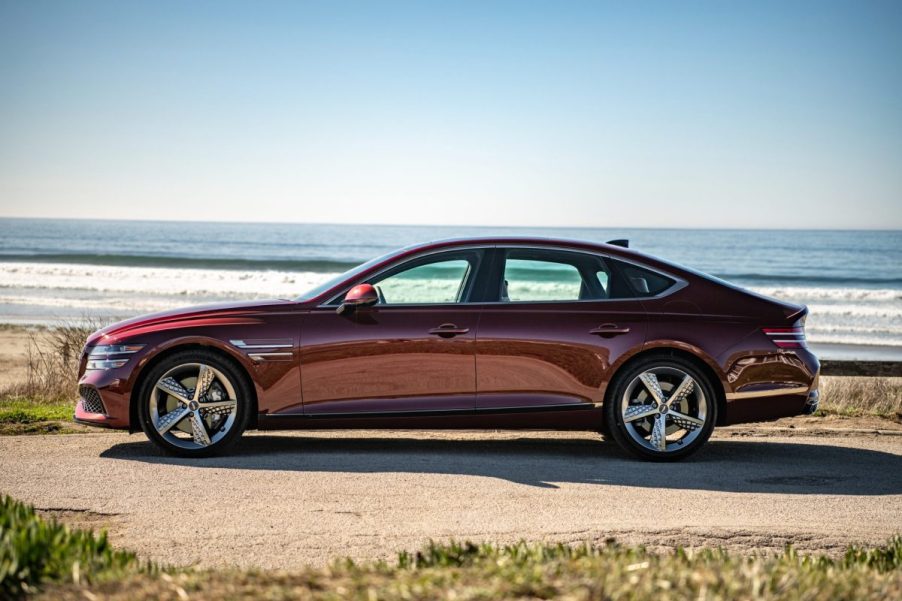
Chip Shortages Mean Your New Genesis May Have Old Technology
The global micro-chip shortage is not fresh news. Car manufacturers and buyers have had to deal with delays for over a year, with some cars sitting in storage waiting for components and others not being built at all.
According to Edmunds, luxury car maker Genesis will be installing older active safety technology to ensure it can keep up with customer demand. This is an interesting decision, as the luxury car market typically relies on the latest and greatest technology to attract customers. Now, new G80 sedans and GV80 SUVs will have fewer active safety features, as waiting for micro-chips could delay deliveries.
What safety features are affected by Genesis’ chip shortage?
In 2021, when Genesis launched the GV80 SUV and G80 sedan, the vehicles were equipped with Highway Driving Assist II (HDAII) as standard. The shortage of micro-chips means that both models will now feature the lower-level, first-generation HDA.
HDA comes with adaptive cruise control, lane-keeping assist, and automatic lane centering. The HDAII system adds a machine-learning function to the adaptive cruise control and improves response time. The package also includes forward collision avoidance with active braking and evasive steering, lane change assist, and lane following assist.
In essence, the loss of the HDAII system means that Genesis’ cars will use a previous, less refined, and responsive system. This won’t affect the overall safety of the vehicles, as the original HDA system is excellent. Still, it does mean losing the latest and greatest features, technology, and updates. Think of it like this; it would be the equivalent of using a computer that hasn’t received an update in over a year. It will still function, but not at the same high level as an updated computer.
How will this affect Genesis buyers?

Edmunds reports that Genesis decided to eliminate the HDAII system from vehicles as a necessary move to keep production up. The HDAII is also no longer available as an option on Genesis’ cars that don’t have the technology as standard.
Because of this change, car buyers will see a price reduction of $200 on their window sticker. That may be a small consolation as the luxury car market depends on state-of-the-art technology to attract buyers.
Genesis’ corporate siblings, Hyundai and Kia, also use the HDAII system on their cars, specifically the Hyundai Ioniq 5 and the Kia EV6. As of now, there is no word if Hyundai or Kia will have the same chip shortage problem.
Does this mean you shouldn’t buy a G80 or GV80?
If having the absolute latest and greatest driving assistance safety features is essential to your buying decision, you may want to wait until the supply chain issues ease. However, it is important to reiterate that the original HDA system is a fantastic suite of active safety features. One that Edmunds still rates very highly.
This also doesn’t mean that Genesis vehicles will be any less safe. The G80 sedan, in particular, is one of the safest cars on the road, grabbing top honors from the IIHS in 2021.
The announcement by Genesis is an unfortunate consequence of the semiconductor chip crisis we currently find ourselves in. Genesis is banking on the fact that customers will want to take delivery of their cars as fast as possible and may be willing to sacrifice current technology for speedy delivery.
There is no word on how long the chip shortage may last and how many other Genesis, Hyundai, and Kia models could face issues. Here’s hoping the issue gets resolved and Genesis can eventually bring the G70 Shooting Brake stateside.


